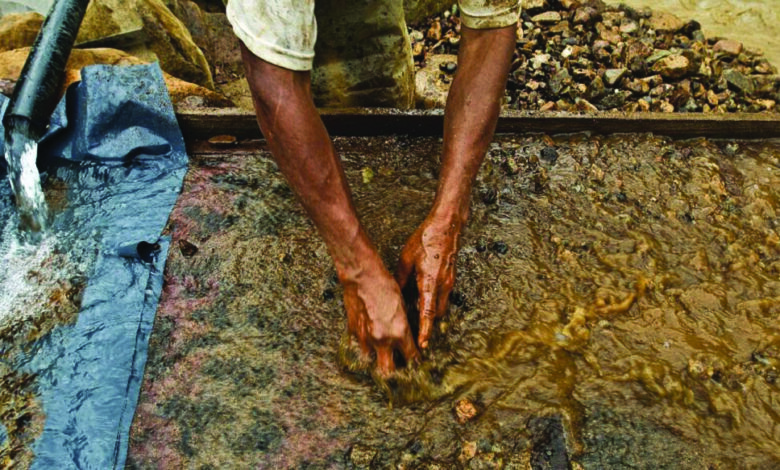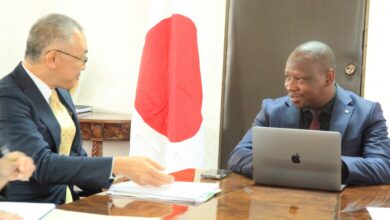Artisanal Miners Celebrate as Lesotho Government Issues Permits for Alluvial Diamond Extraction

Artisanal miners across Lesotho are celebrating after the government officially began issuing mineral permits for the extraction of alluvial diamonds from riverbeds and old channels. This historic move, which came into effect earlier this month, legalises small-scale diamond mining and formally integrates it into the national economy.
The permits are issued under the Mines and Minerals (Amendment) Act of 2022, which grants indigenous Basotho the legal right to extract diamonds eroded from their original Kimberlite sources and deposited in alluvial formations. This comes after a three-year suspension of permit issuance, which was put in place to address the lack of regulatory frameworks that would protect miners and the environment.
Each permit allows the holder to mine in an area not exceeding 100 square metres, for a one-year period beginning May 5, 2025, and ending May 5, 2026. Miners are required to operate under approved work programmes, pay annual fees to the Commissioner of Mines, and submit monthly royalties to the government in line with the amended legislation.
The move comes amid positive trends in the diamond sector. The Lesotho Diamond Mining Industry Performance Report indicates that government revenue from mining taxes and levies rose from M940 million in 2021 to M1.1 billion in 2022, reflecting growing returns from the sector.
Kobina Baffoe, vice chairperson of the Artisanal Miners’ Association, welcomed the development as a breakthrough for local miners who have long operated without legal recognition. He said the association is committed to the responsible development of the industry and pledged to work toward full recognition as small-scale miners. He also encouraged artisanal miners to collaborate, share knowledge, and form cooperatives to strengthen the sector and boost employment opportunities. Baffoe believes the sector could account for up to 10% of Lesotho’s GDP within the next five years if properly supported by the government.
Among the beneficiaries of the new permits is Mabohla Mabusetsa, who will begin operations along the Carlton River (Leporoporo) near Lifariking in Berea District. Mabusetsa, a long-time advocate for artisanal miners, described the development as a victory for Basotho who lack the capital to invest in large-scale mining operations. He noted that the opportunity would allow local communities to benefit directly from the country’s natural diamond resources. Mabusetsa also played a role in shaping the 2015 Minerals and Mining Policy, which was the first to formally recognise artisanal and small-scale mining—locally known as ‘Peke le Kharafu’.
According to Mabusetsa, the official recognition and licensing will empower miners to operate ethically and responsibly while also contributing to job creation and increased national revenue.
Deputy Principal Secretary in the Ministry of Mining, Seboka Thamae, explained that the previous law, the Mines and Minerals Act of 2005, had excluded artisanal and small-scale mining. This gap led to the 2022 amendment, which introduced clear frameworks to protect both the environment and the welfare of miners. He noted that Lesotho’s diamond deposits are mostly found in rivers and Kimberlite pipes, the latter being the domain of large-scale mining companies due to the need for extensive blasting and advanced machinery.
Thamae stated that artisanal miners are now required to report all diamond finds to the ministry, which will facilitate auctions or connect them with international markets, particularly in places like Dubai. The ministry is also working with the World Diamond Council and other partners to ensure transparency and sustainability in the sector. Thamae expressed hope that artisanal miners would evolve into small-scale mining operations and eventually grow into formal mining companies.
Despite the progress, Thamae acknowledged lingering challenges. There is currently no legal requirement for miners to operate within their own communities, which could potentially lead to disputes in areas where they are not originally from. He urged miners to be mindful of this risk and prioritise working within their home regions to avoid community conflicts. The government, he said, remains committed to supporting the growth of artisanal miners and creating a regulatory environment that allows them to thrive.
Former Minister of Mining, Serialong Qoo, praised the decision as a major step toward economic empowerment. He emphasised that Lesotho’s natural resources should benefit its people and help fight poverty. Qoo pointed out that legalising artisanal mining would give Basotho the means to improve their lives by generating income to support their families, invest in farming, and educate their children. He also advised the Ministry of Mining to simplify the application process by deploying officials to rural areas and using local chiefs’ offices to help people apply for permits without having to travel long distances or incur high costs.
The government’s decision to issue mineral permits for alluvial diamond mining marks a new era for artisanal miners in Lesotho. With legal recognition, clearer frameworks, and growing government support, these miners are now better positioned to play a significant role in the country’s economic development.
Join 'Lesotho News' WhatsApp Channel
Get breaking Lesotho news — delivered directly to your WhatsApp.
CLICK HERE TO JOIN



